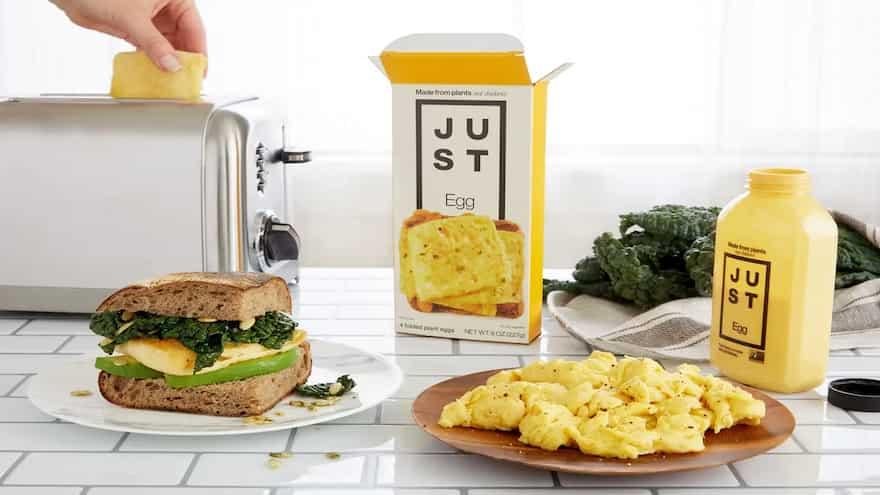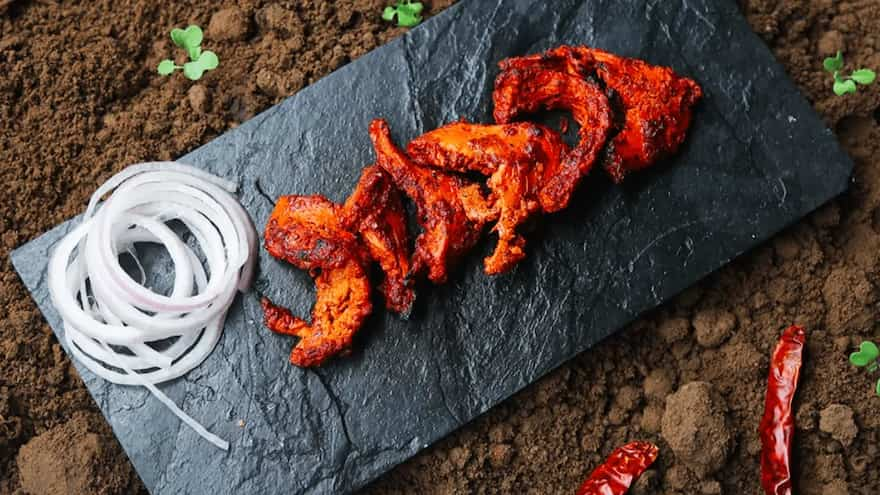The smart protein sector includes plant-based, cultivated, and fermentation-derived meat, eggs, dairy, and seafood. Across all categories, these foods use less land, water, and energy, emitting fewer emissions and assuring food security, better planetary health. These alt-proteins also do not require antibiotics and eliminate the risk of zoonotic disease, making them far better for public health. In India, there are now 65+ alternative protein startups active across plant-based, fermentation-derived, and cultivated protein technologies together referred to as smart protein. It was captured in GFI India's Smart Protein Company Database, informs Mansi Virmani, Communication Manager at the Good Food Institute India (GFI). More than half of these have been launched after 2019, indicating the massive strides this sunrise sector has made, even amid a global pandemic. In conversations with 7 leading players from this industry, we got a 360-degree view of the past, present and future trends in the Indian market. And their inputs are pretty inspiring.
Highest takers of plant-based meat or smart protein in India
According to Mansi, the target demographics for these startups, as well as for larger companies like ITC, Tata Consumer Products, and Licious, who have launched plant-based meat ranges in 2022 - can be categorised as the 'early adopters of plant-based meat'. In India, they are between 25-44 years old and are well-educated urbanites with hefty incomes. They are omnivores with a meat-eating frequency higher than the rest of the population. For them, meat-eating has moved beyond special occasions. "As per a 2021 study by GFI India, 1 in 4 early adopters are considering reducing their consumption of conventional meat. This segment has a high positive disposition towards plant-based meat, with 77% willing to try the category," shares Mansi.

Alt-meat nuggets, Image Source: Imagine Meats
The most in-demand plant-based food
In the market today, there are 390+ plant-based meat, egg, dairy, and seafood SKUs from 65+ brands across 35+ formats. From initial products in the form of plant-based chicken nuggets and samosas, now there are plant-based biryanis, curries, kebabs, keema, cheeses and kinds of milk.
Sohil Wazir, Chief Commercial Officer at Blue Tribe Foods, articulates, "The speed at which the plant-based meat category is evolving in India is inspiring! We are seeing second-generation plant-based meat products in various formats, which rivals the selection in western markets. But to truly capture the Indian market and the Indian style of cooking, we need to innovate in providing products which lend themselves easily to a variety of use cases, such as chunks or whole muscle cuts."

Mutton bytz biriyani, Image source: GoodDot
When it comes to 'hero dishes', biryani emerges as the most loved dish among early adopters, followed by gravies with meat.
New key ingredients
Many startups and companies are consciously trying to move away from or supplement traditional inputs for plant-based meats like soy and wheat and exploring raw materials such as peas, certain beans, hemp, lentils etc. Ingredients such as mycelium, seaweed and algae are also increasingly on their radar. Many plant-based dairy brands like Oatey, Dancing Cow and alt foods have successfully worked on blends that use millets. Ingredients-based startups like Devigere Biosolutions and Proeon are working on functional combinations of plant protein isolates and concentrates using pulses and lentils that will provide high-quality value add inputs to the industry.

Vegan egg dishes, Image Source: Just Egg
2023, the game changer
The market is starting to become saturated with similar products, and differentiation will undoubtedly be the game changer in 2023. Startups and companies experimenting with unique ingredients, technologies and applications.
Akanksha Ghai, the co-founder, says, "BVeg Foods is the first in India to have a high moisture extrusion technology from Europe capable of producing whole muscle chunks with long fibrous textures and a better bite. This technology helps us create meat alternatives generation 2.0. The new range of HME uses pea and soy proteins and will come in a classic and plain version, as well as in marinated versions such as tikka, shawarma etc."

Plant-based meat kebabs, Image Source: GoodDot
Another plant-based meat brand JustDigIn has come up with American-style steaks and "pulled" chicken shreds designed explicitly for versatility in food service.
Indian consumers' awareness
In a recent EAT Forum consumer study, India was reported to have the highest number of consumers interested in eating plant-based food. The same report found that consumers are willing to pay a premium for "environmentally responsible food". Moreover, 2022 also saw the who's who of Bollywood and sports entering the smart protein arena.
According to Anand Nagarajan, co-founder of Shaka Harry, "It is very encouraging to see that in some key markets' customers have gone from being curious about plant-based meat to adding our products to their monthly shopping list. With MS Dhoni on board, we are seeing increased inbound enquires for listing, partnerships, exports, and interest from equity investors."
Letting go of regular meat, eggs, seafood and fish feasting
Contrary to the popular perception of India having a vegetarian majority, over 77% of Indians consume meat in some form or another. This demand and consumption pattern is set to rapidly rise. According to the UN FAO, Indian per capita meat consumption is growing, with poultry meat projected to increase by 850 per cent by 2040.

Plant-based meat keema with pav, Image Source: Blue Tribe Foods
Having said that, there are positive shifts towards cleaner and greener eating choices among Indians. This simple switch is not stemming from the need to sacrifice their favourite indulgence.
Startups that offer consumers who are looking to cut their consumption of animal-derived foods a simple switch are rapidly growing. FMCG giants like Tata Consumer Products alone reach over 200 million Indian households and know all too well how to get nutritious food onto Indians' plates. Moreover, a D2C unicorn company like Licious, known for revolutionising the meat buying experience, starting their own line of plant-based meats is a game-changing move. Simeran Bhasin, business head of alternative protein at Licious, says, "UnCrave was born out of our consumers' craving for meat when they can't have meat for some reason. And we wanted the meat eater to never miss the meat. Thus we became India's first brand to house meat and meat alternatives."
These products cater to their million-plus meat-consuming base that is looking for sustainable meat alternatives on certain days of the week or during festivals for various reasons ranging from lifestyle choices, health, sustainability concerns etc.
Plant-based menus debuting in eateries
Research shows that one in three meals with meat is ordered from outside. Therefore, food service is a great starting point for plant-based meats to create awareness and make an entry into households. Hotels, restaurants, and cafes may draw in more customers, give more inclusive group eating options, and appeal to younger demographics by including plant-based foods on their menus. Brands working with HoReCa give chefs a unique platform for culinary creativity - to retrofit existing dishes and create new menu items with versatile ingredients.

An array of famous Indian dishes with alt-meat, Image Source: Imagine Meats
"We have seen some interesting collaborations across QSR, high-end restaurants, cafes and more this year. Some notable examples include Imagine Meats x Tata Starbucks, Evo Foods X Cafe Mondegaar, Greenest x Burgrill India, among many others," points out Mansi Virmani from GFI.
Long-time hotelier and restaurateur and now co-founder, Plantaway, Romil Ratra, says, "Plantaway's diverse portfolio has been created for food service/HoReCa and is not limited to just one category. It has nearly 20 SKUs across dairy, daily staples, and meat alternatives carefully curated for every type of menu and a range of cuisines. Hotels and restaurants can power their vegan and plant-based offerings."
To co-create food solutions for customers looking for nutritious and delectable plant-based meals, brands like Another Foods are also utilising novel business structures. They support their partners with original product development and other assistance.
Millet-based alternative protein, a new possibility
India's biodiversity in crop cultivation and the possibilities of utilising sustainable nitrogen-fixing crops like pulses and millets are starting to see enormous promise in the smart protein sector. 2023 is the International Year of Millets. Being the world's largest producer of this crop, India has the potential to be the epicentre of millet protein-based meat, egg and dairy smart protein products.

Vegan egg omelette with vegan cheese, Image Source: Just Egg
Attributing to the survey results, Mansi states there are significant investments in R&D and product developments towards a nutrition-centric approach of providing cleaner and shorter labels to meet the growing demand of the early adopter for healthier alternatives.
Alt plant-based protein to beat animal protein in pricing
The Indian consumer is price sensitive, and lowering the cost of plant-based products will be the key to sustained and repeat purchases and consumption of these alternatives. Abhay Rangan, founder of OneGood, a provider of affordable and accessible substitutes to conventional dairy shares, "Being able to beat the price of animal product incumbents is very much possible - plant-based ingredients are more efficient, as the input "costs" like water, energy, etc. are inherently lower than those for animal ingredients. In a value-conscious society, delivering high-quality, affordable plant-based nutrition is the only way to scale this category".
To work towards achieving price parity and bringing down costs, localising end-to-end value chains, optimising capital infusion into the sector, increasing manufacturing capabilities and processing infrastructure to achieve economies of scale, and sustained government support for R&D are vital.


